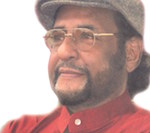A Brief Colonial History Of Ceylon(SriLanka)
Sri Lanka: One Island Two Nations
A Brief Colonial History Of Ceylon(SriLanka)
Sri Lanka: One Island Two Nations
(Full Story)
Search This Blog
Back to 500BC.
==========================
Thiranjala Weerasinghe sj.- One Island Two Nations
?????????????????????????????????????????????????Saturday, September 24, 2016
On The Concepts Of Federalism & Secularism

By Surendra Ajit Rupasinghe –September 23, 2016
It is simply amazing how the very mention of these concepts in an open
discourse on constitutional reform would immediately trigger frenzied,
robotic responses from learned professors and self-appointed pundits.
The response from Dr. Dayan Jayatilleka to Madam Chandrika’s remarks on the subject is instinctual, political and vituperative, and deliberately distorted and misleading.
Federalism
His argument has three main points. First, that federalism inherently
contains the element of separatism. This is empirically unsupported, as
in classic examples such as the US, India, Germany, Sweden, Switzerland
etc. Not perfect examples, but where there is some degree of social
cohesion, in spite of severe national and ethnic oppression in some
cases. The second aspect of the argument that Sri Lanka is just too
small a country to afford federalism is purely prejudiced and
anti-democratic. When we deal with a question of an oppressed nation
seeking liberation, the guiding criteria is not the size, but the
democratic essence of the demand for dignity, equality, security,
autonomy and democratic freedom. But, we cannot expect such a profound
vision of democracy from a sycophantic, careerist, ideological agent of a
rabidly chauvinist camp as that led by Mahinda Rajapaksa. Mahinda
Rajapaksa’s credibility as a ‘patriot and defender’ of the
Sinhala-Buddhist Nation has been completely and irrevocably demolished
by his very own act of ‘betrayal’ when he bribed Prabhakaran to the tune
of millions, which massive funds the latter would have used to grease
up his war machine to kill Sinhala-Buddhist soldiers and civilians. He
also gunned down unarmed Sinhala civilians who were exercising the
fundamental right of democratic protest- the very same guns that killed
unarmed Tamil civilians. Also, the attempted coup by him to suppress the
presidential election results shows to what extent he would go to
betray the sovereignty of the people, including the Sinhala Buddhist
nation, simply to entrench his dynastic rule and dictatorship through
perpetuity. The third major point of argument is that Federalism would
certainly play into the hands of an expansionist Tamil Nadu. This is
just fear-mongering designed to incite and mobilize his tribal-feudal,
chauvinist political base and score points for his Master. There
certainly could be such grand designs by some Tamil Nadu politicians.
Precisely for the reason that foreign powers could and do play dirty
politics with the Tamil nation that it must be decisively determined on a
sustainable democratic basis. Indeed and in fact, it is the denial and
violent suppression of nationhood and the attendant right of
self-determination that has led to the politics of separatism and paved
the way for foreign powers, including India, to sink their fangs into
the lifelines of the people and the country. None are so blind as those
who have eyes but refuse to see.
Towards a Transcending Solution
I have initiated a new framework and approach for resolving the Tamil
National Question, sponsored by the Inter-Religious Peace Foundation in
the form of a ‘Citizen’s Initiative for Constitutional Reform’. This new
paradigm positively transcends the mutually exclusive polarities
between a Federal State and a Unitary State. I have suggested a formula
that calls for a Second Chamber constitutionally entrenched and
empowered to protect the national-democratic rights of all
nationalities, which would also elicit a constitutional pledge to a
democratically constituted State. This would allay all fears of
separation and provide a basis for all nationalities to enjoy parity of
status, dignity, security and autonomy, as equal and indivisible
partners and architects of a modern, unified democratic State. I have
suggested that this would provide a solid and principled basis to forge a
united, indivisible and integrated Sri Lankan Nation, to be forged on a
voluntary basis. It is also a remedy against the ‘tyranny of the
majority’. There are no perfect solutions. But we must strive to move
forward and away from the dark era of enforced subordination, communal
violence and war, which has violated and defiled us all and robbed us of
our collective dignity and humanity.


